What to Look for in a Forex Scam
Abstract:As of April 2019, the spot FX market, which includes currency options and futures contracts, exchanged about $6.6 trillion each day. 1 With such a large quantity of money moving about in an unregulated spot market that trades instantaneously, over the counter, and with little accountability, forex scams entice unscrupulous operators to make quick money. While many once-popular scams have faded away owing to the Commodity Futures Trading Commission's (CFTC) aggressive enforcement efforts and the founding of the self-regulatory National Futures Association (NFA) in 1982, some old scams persist, and new ones keep cropping up.
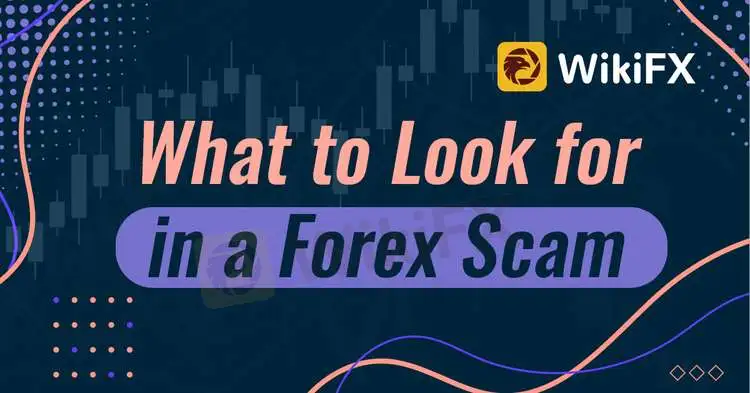
As of April 2019, the spot FX market, which includes currency options and futures contracts, exchanged about $6.6 trillion each day. 1 With such a large quantity of money moving about in an unregulated spot market that trades instantaneously, over the counter, and with little accountability, forex scams entice unscrupulous operators to make quick money. While many once-popular scams have faded away owing to the Commodity Futures Trading Commission's (CFTC) aggressive enforcement efforts and the founding of the self-regulatory National Futures Association (NFA) in 1982, some old scams persist, and new ones keep cropping up.
The Point-Spread Scam in the Past
The bid-ask spreads were manipulated by computers in an old point-spread forex fraud. The point gap between the bid and ask represents the commission paid by a broker in a back-and-forth transaction. The spreads between currency pairings are usually different. When the point spreads across brokers diverge significantly, the fraud occurs.
For example, some brokers provide spreads of seven pips or more in the EUR/USD, rather than the standard two-to-three-point spread. (Based on market tradition, a pip is the smallest price movement that a specific exchange rate produces.) The smallest difference is the last decimal point, because most major currency pairings are priced to four decimal places.) If you add four or more pips to each transaction, any potential benefits from a good trade might be eaten away by commissions, depending on how the forex broker handles their trading costs.
Over the last ten years, this fraud has died down, but be wary of any offshore retail brokers that are not licensed by the CFTC, NFA, or their home country. When challenged with actions, these impulses still persist, and it's extremely easy for businesses to pack up and vanish with the money. For these computer tricks, many people envisioned a prison cell. However, the bulk of violators in the past have been US-based businesses, not offshore businesses.
The Scam of the Signal-Seller
The signal salesman is a common modern-day con. Retail firms, pooled asset managers, managed account firms, and individual traders who offer a system for a daily, weekly, or monthly fee that claims to identify favorable times to buy or sell a currency pair based on professional recommendations that will make anyone wealthy are known as signal sellers. They boast about their extensive trading expertise and talents, as well as testimonials from others who attest to the person's abilities as a trader and friend, as well as the large riches that this person has amassed for them. All the naive trader has to do is pay over a certain amount of money in exchange for trading advice.
Many signal-seller con artists just take money from a set number of traders and then vanish. Some may suggest a nice trade now and again to keep the signal money flowing. This new swindle is gradually becoming a larger issue. Although there are honest signal sellers that execute trade functions as planned, it is prudent to be suspicious.
Scamming by “Robots” in Today's Market
In some forms of forex-developed trading systems, an old and new swindle manifests itself. These con artists boast about their system's capacity to create automatic transactions that earn large sums of money even while you sleep. Because the procedure is totally mechanized using computers, the new phrase is “robot.” In any case, many of these systems have never been subjected to a formal evaluation or testing by a third party.
The settings and optimization codes of a trading system must be tested while examining a forex robot. The system will create random buy and sell signals if the settings and optimization codes are incorrect. As a result, naïve traders will do nothing but a gamble. Although there are established techniques on the market, aspiring forex traders should do their homework before investing in one of these strategies.
Other Things to Think About
Many trading systems have traditionally been fairly expensive, costing up to $5,000 or more. This might be considered a ruse in and of itself. Today, no trader should spend more than a few hundred dollars on a good method. Be especially wary of system marketers who charge outrageous rates in exchange for a guarantee of spectacular outcomes. Instead, seek for genuine merchants who have had their systems thoroughly examined so that they may potentially generate money.

Related broker




Read more
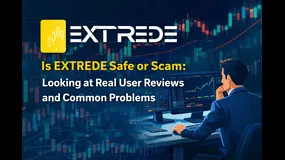
Is EXTREDE Safe or Scam: Looking at Real User Reviews and Common Problems
Many traders want to know: "Is EXTREDE a real broker or a scam?" This is a fair question. When you look at the EXTREDE website, it looks like a big, official, and trusted broker from around the world. It seems confident, experienced, and safe. But when you check other websites that verify brokers, you find a very different and worrying story that raises serious warning signs. This review aims to get past the marketing. We will carefully look at the facts, comparing what EXTREDE says about itself against what neutral industry watchdogs have found. We will also look at the common problems that people usually have with brokers like this. By the end of this review, you will have a clear, fact-based understanding of the real risks, helping you make a smart decision about whether EXTREDE can be trusted.
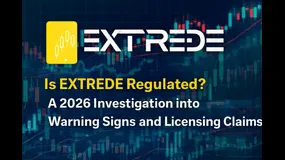
Is EXTREDE Regulated? A 2026 Investigation into Warning Signs and Licensing Claims
If you are looking for information about the EXTREDE regulation, you are asking the most important question any trader can ask before opening a trading account. The safety of your capital depends on the answer. EXTREDE's website shows an image of a trusted and licensed broker used around the world. However, our 2026 investigation shows a very different reality when these claims are checked through independent sources. This article will examine the broker's claims, present the evidence we can verify from our checks, and give a clear answer about the EXTREDE license situation. Read on!
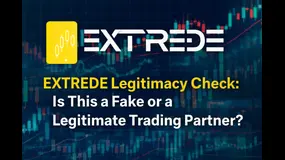
EXTREDE Legitimacy Check: Is This a Fake or a Legitimate Trading Partner?
You are here for a direct answer: Is EXTREDE legit or a platform to avoid? We will respect your time and provide the evidence-based conclusion immediately. The details that follow will build the case, but the verdict is clear from the start. Read on to find the answer to this most sought-after question.
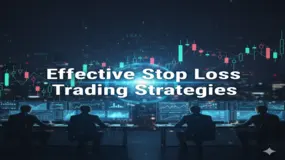
Effective Stop Loss Trading Strategies
In a forex market where fundamental and technical factors impact the currency pair prices, volatility is expected. If the price volatility acts against the speculation made by traders, it can result in significant losses for them. This is where a stop-loss order comes to their rescue. It is one of the vital investment risk management tools that traders can use to limit potential downside as markets get volatile. Read on as we share its definition and several strategies you should consider to remain calm even as markets go crazy.
WikiFX Broker
Latest News
BitPania Review 2026: Is this Broker Safe?
Kudotrade Review 2026: Is this Forex Broker Legit or a Scam?
Is EXTREDE Regulated? A 2026 Investigation into Warning Signs and Licensing Claims
XTB Analysis Report
ALPEX TRADING Review 2025: Is This Forex Broker Safe?
MONAXA Review: Safety, Regulation & Forex Trading Details
SOOLIKE Review 2026: Is this Forex Broker Legit or a Scam?
Macron's India Trip Exposes EU Tech Overreach And Policy Failures
Five key takeaways from the Supreme Court's landmark decision against Trump's tariffs
BCEL Review 2026: Comprehensive Safety Assessment
Rate Calc
